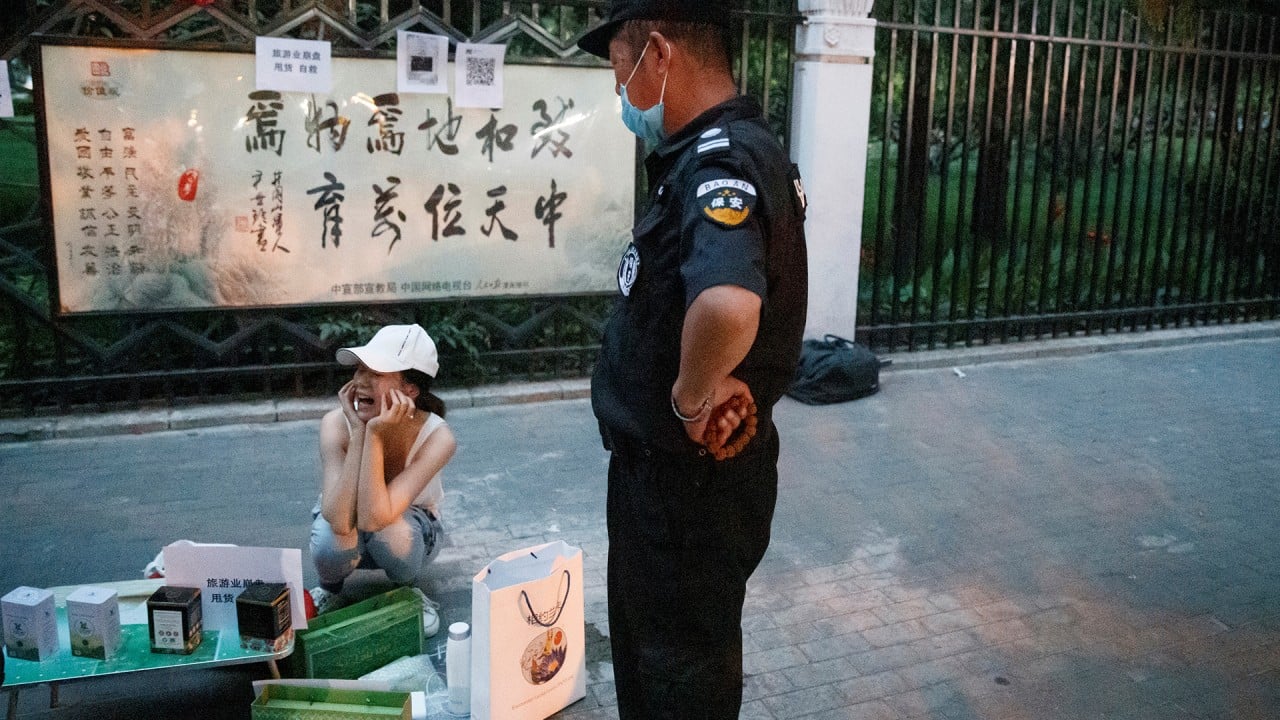
02:31
Beijing’s snub puts street vendors on wrong side of regulations again

One of China’s largest retail groups specialising in department stores has been granted a duty-free licence, as the government tries to revive the coronavirus-hit retail sector and court overseas spending.
Wangfujing Group, which owns the landmark Beijing Department Store in the capital, said in an exchange filing on Wednesday it had received approval from the Ministry of Finance to sell duty-free goods.
The duty-free licence is only the eighth to be approved by the finance ministry and comes as China is trying to boost domestic consumption to offset the impact of the pandemic on economic growth.
The company operates at least 54 stores in 33 cities across China, giving it a much bigger footprint than competitors like China Duty Free Group and Sunrise Duty Free.

02:31
Beijing’s snub puts street vendors on wrong side of regulations again
Retail sales plunged by 16.2 per cent in the first four months of 2020 from a year earlier, while gross domestic product contracted by 6.8 per cent in the first quarter.
In his government work report last month, Premier Li Keqiang said encouraging domestic consumption would help stabilise the economy and be the main engine for growth this year.
Local governments across China have handed out billions of yuan worth of consumer vouchers to lift spending, while e-commerce companies have also provided vouchers for online sales.
“Spending will return following policies to expand duty-free stores on islands and in downtowns,” analysts Fan Junhao and Xu Zhuonan, from China International Capital Corp (CICC), said in a note on Wednesday.
Chinese citizens bought more than 180 billion yuan (U$25.4 billion) of duty-free goods overseas in 2018, compared to domestic purchases of 40 billion yuan, the CICC analysts estimated.
The Ministry of Commerce said in April it would streamline duty-free policies and help increase the number of stores at airports and in downtown areas as part of its consumption plan.
Guangzhou city, an economic hub in southern China, said last month it would seek approval to establish duty-free stores in its downtown.
The government has flagged duty-free shopping and tax breaks for retailers as a way of improving the economy and attracting international brands to China.
Expanding duty-free shopping will also help Beijing meet its pledge to open up the economy to foreign companies, amid long-standing complaints from major trading partners about unfair treatment of overseas firms operating in China.
Wu Qi, a senior fellow of the Beijing-based Pangoal Institution, said it was understandable the government wanted to boost domestic consumer spending given overseas travel disruptions, but he doubted it would result in a shopping spree given the economic climate.
Commerce ministry data showed the sales value of duty-free stores in Hainan, which is set to become a free trade port, dropped 30.3 per cent in the first quarter.
Beijing will now have two duty-free stores in its downtown, which allow Chinese citizens to buy up to 5,000 yuan (US$706) worth of goods within 180 days of returning to the country.
On Wednesday, bright red banners and LED screens covered the Beijing Department Store to advertise “Beijing consumption season”, but staff could not provide details about when duty-free shopping would be available.